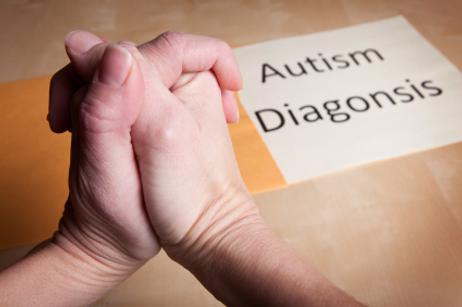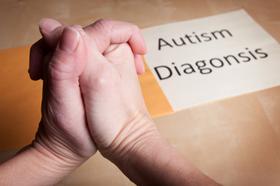According to Autism Speaks, a national society devoted to serving the autistic population and family members, 1 out of every 150 children is diagnosed with Autism Spectrum Disorder (ASD). ASD is a learning disability that typically involves a child’s struggle to socially, emotionally, and personally interact with others. Autistic children tend to show an unawareness of others’ feelings, facial recognition, and social cues.
Despite these struggles, however, ASD students are commonly intellectually exceptional. Autism Spectrum Disorder is described as a “spectrum” because the symptoms of each child can vary significantly. Those with strong signs of Autism are generally labeled as having “Classic Autism,” while individuals with fewer signs of autism may be labeled as having “Asperger’s Syndrome.”
The National Autism Association defines autism as follows:
Autism is a neurodevelopmental disorder characterized by:
- social impairments
- cognitive impairments
- communication difficulties
- repetitive behaviors
According to Autism Speaks, “Compared with classic autism, children with Asperger's Syndrome usually don't show any signs of major cognitive difficulties — their IQ falls in the normal or even superior range.” Similarly, children who are diagnosed with Classic Autism may have more noticeable signs but are often able to exceed their peers’ standard intellectual and cognitive abilities.
High school students or adults who are diagnosed with Autism Spectrum Disorder can be confident that community colleges across the country have various programs for individualized support. As Autism is, by far, the fastest-growing serious developmental disorder in the United States, community college leaders are ardently seeking new programs, lessons, and curriculum opportunities to build enhanced ASD foundations.
This video offers a parent's perspective on education an autistic child at community college.
How to Determine if a Community College is Right for an ASD Student
According to Community College Times, many students with Asperger’s and Autism encounter new and often unexpected challenges in the college setting.
As ASD typically hinders one’s social and communication skills, ASD students must learn the skills needed to become their own advocates. The law only requires accommodations for students with disabilities from kindergarten through the 12th grade, and therefore, college educators and instructors are not legally obligated to modify their lessons or instructional styles to meet various learners’ needs.
Subsequently, for a student with ASD to begin his or her pathway to higher education, experts suggest a variety of strategies. Foremost, a student and his or her parents should meet with college counselors to ask imperative questions, some of which may include:
- What support centers does the campus offer for ASD students?
- Are there any professors or instructors who have undergone training or certification for teaching ASD students?
- Are modifications for ASD students available? (These may be extended time on tests or copies of teachers' notes)
- Does the college offer any ASD-based social organizations? (These organizations could be a peer mentor program or an autism organization for students)
This video offers some resources for students between high school and college with autism.
Community Colleges with Renowned ASD Support
With these central questions and topics in mind, there is an array of celebrated community college programs offering innovative resources for students with Autism Spectrum Disorder. For example, Bergen Community College (BCC), located in Paramus, New Jersey, is an outstanding institution with active organizations determined to increase student integration and guidance.
Through its groundbreaking “Autism Task Force,” which is a group comprised of faculty members and students, BCC students seeking ASD support can find an array of mentors and resources. With the “Task Force,” students can enroll in, for example, annual Autism Summits. By attending BCC’s 2nd Annual Summit, students were able to discover more about Autism in today’s workforce, as speakers and panels evaluated topics such as:
- How to know what employers are looking for
- How to become an advocate for oneself
- The rights of ASD candidates according to the United States Disabilities Act
- Additional employment / professional topics focusing on ASD in the workforce
Furthermore, adding to the opportunities at BCC, students interested in taking courses at Howard Community College (HCC) will also encounter extensive forms of support. Located in Columbia, Maryland, HCC students can utilize the far-reaching resources of the local Howard County Autism Society (HCAS). With HCAS, Autistic students enrolled in HCC courses benefit from the efforts of “Project Access,” which is a local program that has been specifically created to help individuals with disabilities facilitate a smoother transition from high school to post-secondary schools. The goal of the program is to increase HCC’s retention and success rates for students with disabilities. Adding to this, the program also strives to “improve career counseling and job placement services for students with disabilities.”
With local ASD student groups, academic service centers, and one-on-one tutoring programs, students with Autism can meet with their local community college advisor to determine if the campus is an ideal fit. As a rising number of Autistic students are enrolling in higher education courses, students and parents should be able to encounter a range of innovative resources at their nearby community college.
Questions? Contact us on Facebook. @communitycollegereview















